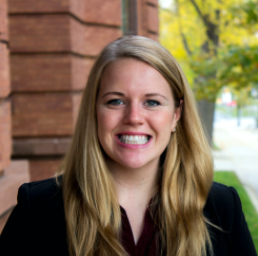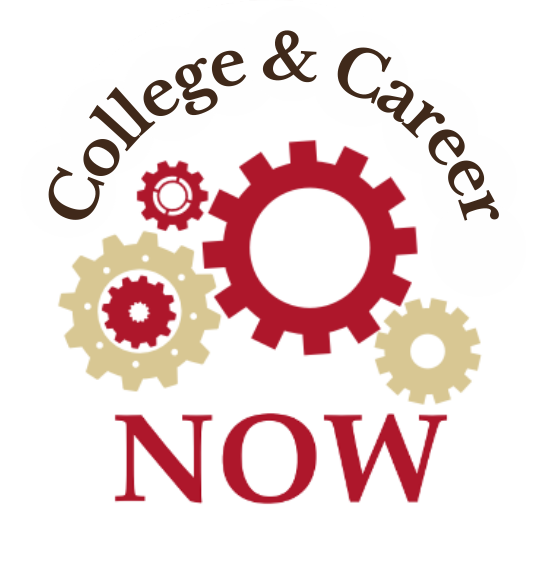
#SDSUSCFellows- Ruby Griggs
Interview with Ruby Griggs
School Counselor at Hamtramck High School
What inspired you to want to become a school counselor?
Education is powerful. It opened a lot of opportunities for me. I liked school growing up and it was something that I was good at. When I went to college, it opened my eyes to social injustices. I grew up in homogenous, White, rural communities and didn’t really know a lot about the world. Once I went to college at University of Michigan I was more exposed to things going on. I decided that the best way to work towards improving the world was to work in education and help society become more educated, as well as help students who may not have as many opportunities. That’s what got me into the education field. I also worked for City Year in Detroit as a college advisor. I did that for a few years and that’s when I realized I wanted to be a school counselor because I want to help students with this part of their lives.
What is the biggest challenge you faced in your own educational journey?
Going to college, I thought I would be an engineer because I liked math and science. So I was going down that route and found myself really unhappy. I didn’t like my classes. I didn’t feel like that was the right fit. So that was a challenge, letting go of that expectation that I had for myself and then refocus on what I am passionate about. Letting that go I didn’t have a clear direction of where I was going. I knew that I didn’t want to do engineering any longer but I wasn’t sure where I was gonna end up. It was hard to trust that I would figure it out.
What message of encouragement would you give to first generation students trying to figure out their postsecondary path?
I would let them know that nobody knows what they’re doing, everyone is trying to figure it out. Even if your parents did go to college, it was different than when they went. While they may have the cultural capital to navigate the process, it’s still new. I think the biggest thing that first generation students lack sometimes is confidence and belief in themselves that they can do it. Financial aid is also oftentimes a concert with many saying that they can’t afford it, but more often than not they are eligible for a lot more financial aid than they thought. So I would tell them don’t let that hold you back, it’s something we can figure out. I would just say the biggest lesson I would try to drive home is that you can do this. You have the ability and are capable of being successful.
If you could give one piece of advice to higher ed professionals, what would you want them to know?
Be understanding of where students are at. Students come from all different backgrounds and different life experiences so take that into consideration when teaching and when working with college students. This goes for professors, as well as administration. Some students don’t have the language or tools to advocate for themselves, so it’s important to keep that in mind.
From your perspective, what really works in college counseling/advising, access, and success?
Everything was turned upside down in the last year. Whatever may have been working may not be working any longer or vice versa, but I think this last year has taught all of us to be flexible and adaptable. It’s also pulled everyone into the virtual world, which I think is something that will help students in the future. They are very much more fluent in the virtual setting from a professional standpoint so I feel like that is something that will definitely be helpful moving forward.
How do you hope to create a more equitable postsecondary advising system?
In my perfect world, I would be able to dedicate more time to the students who need more support. There are always those students who already have their applications done, their FAFSA filled out, seeking you out and asking you questions.Those are the low hanging fruit right like they’re already there. Then you’ve got students in the middle where they might just need you to pull them into the office to ask questions and get their brains going. Then you’ve got those harder to reach students who are maybe less motivated or interested. I would like to be able to spend more time on that middle group and those harder to reach students, to support them and help them find their path. In the last two years, we have tried to focus a lot more on trade programs and different things that are not necessarily your traditional college experience because those are really important too. We have a lot of students that are not interested in college and are burnt out by school or they just want to work. Therefore connecting them with those programs is really going to be important in terms of getting them set up with careers that they’re going to be successful in. They can then get some type of certification or training. That’s what an equitable college advising program looks like in my perfect world.
What do you hope to gain as a school counseling fellow?
I hope to gain perspective and support from fellow school counselors, as well as increase my own toolbox of things I can try with my students. It may be that someone else did something in their program that was really successful or they may introduce me to something I am not aware of or haven’t heard of before. I think we’ve already shared many good resources with each other. It’s also nice to know that other people are going through things similar to what you’re going through. We can then provide support for each other.
Tell us about your advocacy project.
I will be collecting resources for the state of Michigan. It’s similar to the College Counseling Now campaign map https://education.sdsu.edu/cepa – though I’d like to break it down by regions. I would like to create a survey to distribute to the fellows and other educators in the different regions to try to build up the resources that we have available.
